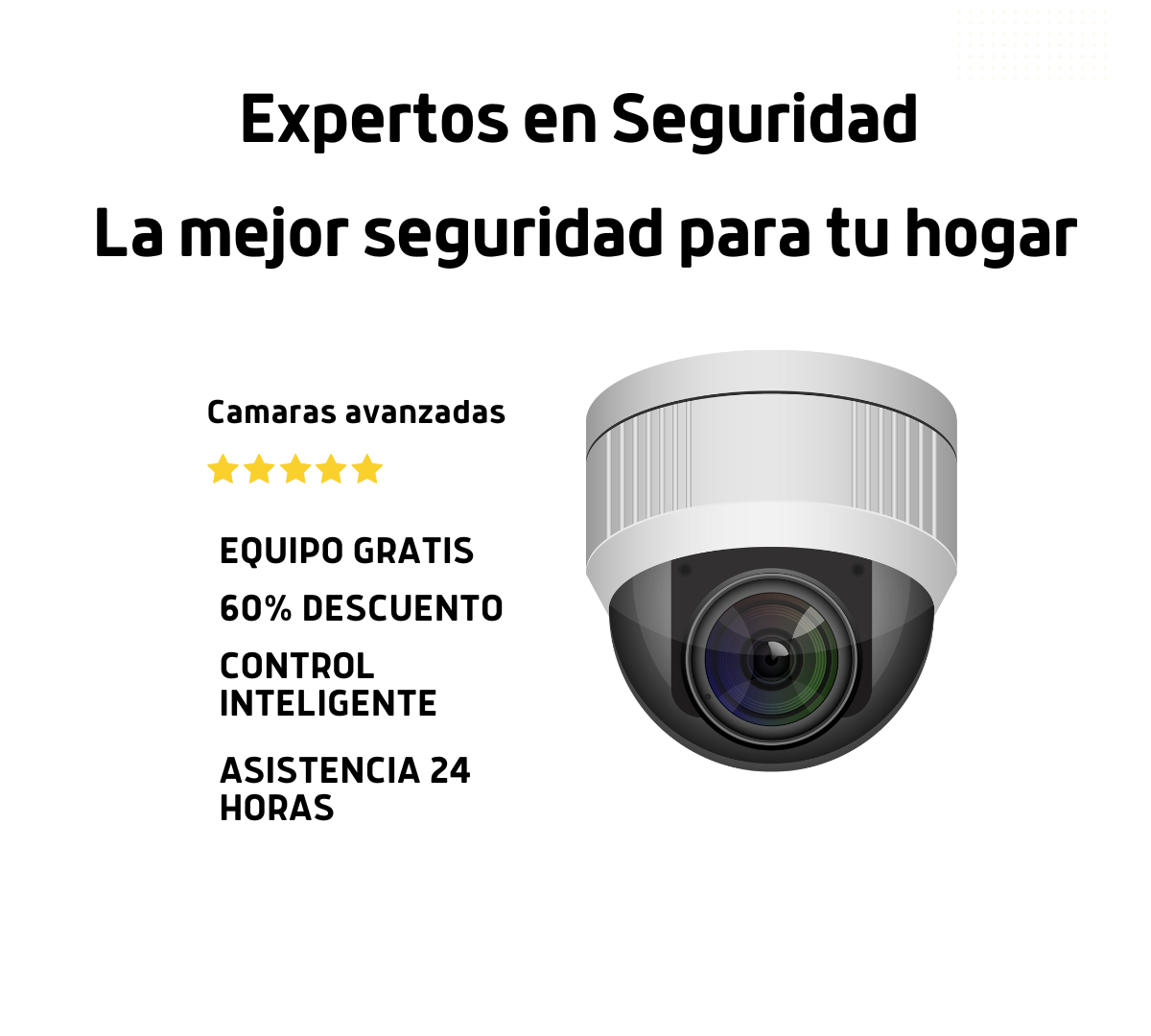Comparador Alarmas Hogar: The Ultimate Guide To Home Alarm Systems
When it comes to securing your home, comparador alarmas hogar plays a crucial role in helping you find the right system that meets your needs. In today's world, having a reliable home alarm system is not just a luxury but a necessity. Whether you're a homeowner or a renter, ensuring the safety of your loved ones and possessions should be your top priority.
Choosing the best home alarm system can be overwhelming with so many options available in the market. This comprehensive guide will walk you through everything you need to know about home security systems, including how they work, key features to consider, and expert recommendations to help you make an informed decision.
With the growing demand for home security, the comparador alarmas hogar industry has expanded significantly, offering a wide range of products and services. From traditional wired systems to modern smart home solutions, there's something for everyone. Understanding your options is the first step toward creating a secure environment for your family.
Read also:Tulsa Tax Services Your Ultimate Guide To Expert Tax Solutions
Daftar Isi
1. Understanding Home Alarm Systems
2. Types of Home Alarm Systems
4. Benefits of Using a Home Alarm System
5. How to Choose the Right System
Read also:Top Tax Services In Tulsa Expert Guidance For Your Financial Needs
9. Customer Reviews and Testimonials
10. Future Trends in Home Security
Understanding Home Alarm Systems
A home alarm system is a network of devices and sensors designed to detect unauthorized entry and alert homeowners or security personnel. The primary function of comparador alarmas hogar is to provide peace of mind by safeguarding your property. Modern systems often integrate with smart home technology, allowing users to monitor and control their security settings remotely via smartphones or tablets.
According to a report by Allied Market Research, the global smart home security market is expected to reach $89.3 billion by 2026, growing at a CAGR of 16.6%. This growth is driven by increasing awareness about home safety and advancements in wireless communication technologies.
How Does a Home Alarm System Work?
Home alarm systems work by detecting motion, opening doors, or breaking glass, and then triggering an alarm or sending notifications to a monitoring center. Most systems consist of control panels, sensors, sirens, and cameras. Some advanced models also include two-way voice communication and video surveillance capabilities.
Types of Home Alarm Systems
There are several types of home alarm systems available, each catering to different needs and budgets. Here are the most common options:
- Wired Systems: Traditional systems that require professional installation and are connected to a central monitoring station.
- Wireless Systems: Easy-to-install systems that use radio signals to communicate between devices.
- DIY Kits: Affordable solutions that allow users to set up their own security systems without professional help.
- Smart Home Systems: Integrated systems that connect with other smart devices for enhanced functionality.
Which Type is Right for You?
Your choice of system will depend on factors such as budget, property size, and desired level of security. For example, if you live in a remote area, a monitored system might be more suitable. On the other hand, urban dwellers may prefer smart home solutions for convenience and ease of use.
Key Features to Look For
When comparing home alarm systems, consider the following features:
- 24/7 Monitoring: Ensures that someone is always watching over your property.
- Mobile App Control: Allows you to arm/disarm your system and receive alerts on the go.
- Video Surveillance: Provides visual confirmation of potential threats.
- Smart Home Integration: Enables seamless interaction with other devices like smart locks and thermostats.
Benefits of Using a Home Alarm System
Investing in a comparador alarmas hogar offers numerous advantages, including:
- Reduced risk of break-ins
- Peace of mind for homeowners
- Potential insurance discounts
- Improved property value
According to the FBI, homes without security systems are up to three times more likely to be burglarized than those with them.
How to Choose the Right System
Selecting the best home alarm system involves evaluating your specific requirements. Consider the following steps:
- Assess your security needs.
- Set a budget for installation and monthly monitoring fees.
- Read reviews and compare features of different brands.
- Consult with experts or security professionals for advice.
Questions to Ask Before Purchasing
Before making a decision, ask yourself these important questions:
- Do I need professional monitoring?
- What type of sensors and cameras are included?
- Is the system compatible with my existing smart devices?
Cost Considerations
The cost of a home alarm system varies depending on the type, brand, and features. On average, you can expect to pay between $150 and $1,000 for equipment and installation, plus monthly monitoring fees ranging from $20 to $60.
Ways to Save Money
Look for promotions, bundle deals, and discounts offered by manufacturers or retailers. Some companies also provide free equipment with a long-term monitoring contract.
Installation Process
Installing a home alarm system can be a straightforward process, especially for DIY kits. However, for more complex setups, professional installation is recommended. The process typically involves:
- Positioning sensors on doors and windows.
- Mounting cameras in strategic locations.
- Connecting devices to the control panel.
- Testing the system to ensure proper functionality.
Top Brands in the Market
Several reputable brands dominate the home security industry. Some of the most popular ones include:
- Vivint
- ADT
- Ring
- Nest
Each brand offers unique features and pricing structures, so it's essential to research thoroughly before committing to one.
Customer Reviews and Testimonials
Reading customer reviews can provide valuable insights into the performance and reliability of different systems. Look for feedback on ease of use, customer service, and overall satisfaction.
Where to Find Reviews
Websites like Trustpilot, Consumer Reports, and Reddit are excellent resources for unbiased opinions from real users.
Future Trends in Home Security
The home security industry continues to evolve with advancements in technology. Some emerging trends include:
- Artificial intelligence-driven analytics
- Facial recognition capabilities
- IoT-enabled devices
As technology progresses, home alarm systems will become even more sophisticated and user-friendly, offering enhanced protection for families worldwide.
Kesimpulan
In conclusion, choosing the right comparador alarmas hogar requires careful consideration of your security needs, budget, and preferred features. By following the tips outlined in this guide, you'll be well-equipped to make an informed decision that ensures the safety and well-being of your loved ones.
We encourage you to share your thoughts and experiences in the comments section below. Additionally, feel free to explore other articles on our website for more valuable information on home security and related topics.

